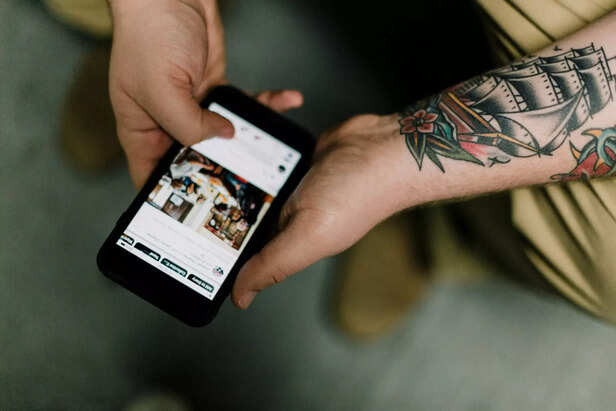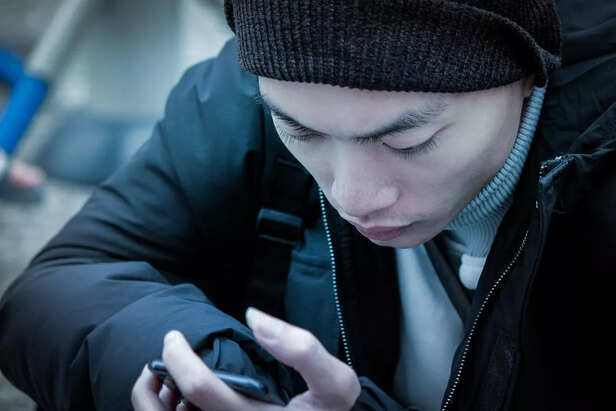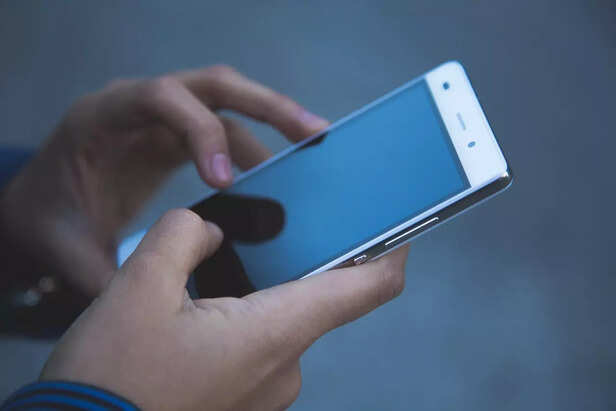Why Generation Scroll Through Crises Like Entertainment
Kaushal | Sep 19, 2025, 13:45 IST
Generation
( Image credit : Pixabay )
The digital age brings a concerning trend. People consume global tragedies like entertainment. Doomscrolling and constant exposure lead to emotional numbing. Social media blurs the line between awareness and action. The article urges a shift from passive spectators to active participants. It encourages intentional changes to rebuild empathy. It emphasizes the importance of real engagement and support.
The war rages in one corner of the world, a flood devastates another, an earthquake shakes thousands of lives and yet, most of us are lying in bed, phone in hand, swiping past it all like another Netflix episode. Tragedy has become part of our daily content feed. We scroll, we pause for a second, maybe share, then move on to the next meme. Why does our generation consume real suffering as if it were entertainment? And what does this say about us, our empathy, and our future?
The Rise of Doomscrolling

The word doomscrolling has become part of everyday vocabulary. It describes the compulsive act of endlessly scrolling through bad news, disasters, and global tragedies online. But doomscrolling is not just about reading; it’s about the way these stories ar bce packaged. Social media platforms often place a natural disaster, a war video, and a funny cat meme all on the same timeline. The brain doesn’t know how to separate them. So instead of stopping to feel the weight of a tragedy, we treat it like another “post” that competes for our attention.

We live in a world where everything can be content. Wars are live-streamed, floods become drone shot videos, and personal grief is often shared on Instagram with background music. When everything looks like content, our brains process even the darkest events the same way we process movie trailers or reality shows. It’s not that we don’t care, but that we are conditioned to react like audiences instead of humans.
This is not because we are heartless, but because the digital system has trained us to consume not to connect.

Psychologists call it compassion fatigue. When people are repeatedly exposed to traumatic events, they begin to feel numb instead of empathetic.
Signs of emotional numbing online: Watching a disaster video and immediately swiping to fashion reels. Feeling momentary sadness but forgetting within minutes. Treating “serious” news as just another scrollable topic. Our constant exposure makes us believe we’re “informed,” but in reality, we’re detached. It feels like the world is collapsing every day and when every day is filled with crises, nothing feels urgent anymore.
For many young people, social media is the primary source of news. But it’s also a stage for identity. This means that crises are often filtered through the lens of “how do I show that I care?” Sharing a post becomes proof of awareness, Adding a hashtag becomes a digital badge, Retweeting tragedy becomes part of one’s online identity. While awareness is good, it sometimes replaces action. We confuse signaling concern with making a difference.

1. Constant Exposure: When every scroll reveals a new crisis, it loses its shock value.
2. Algorithms as Editors: Platforms decide what’s “trending,” and we consume without questioning.
3. Shortened Attention Spans: Tragedies compete with dances, memes, and brand promotions.
4. Psychological Survival: To protect ourselves, we detach emotionally.
5. Culture of Spectacle: We are trained to watch, not to act.

The problem is not awareness; it’s the way we consume. To rebuild empathy, we need intentional changes.
Practical shifts: Take digital breaks during heavy news cycles.
Read long form journalism instead of only relying on 30-second clips.
Support relief work or verified fundraisers.
Talk offline with friends or family about these issues.
Allow yourself to feel instead of numbing the discomfort.
Social media has power. But that power is wasted if crises become just “content” instead of calls for collective action.
Our generation stands in a unique position. We are the most globally connected, the most instantly updated, and yet also the most desensitized. If we continue treating tragedies like entertainment, the gap between “awareness” and “action” will only widen. But awareness doesn’t have to end at the swipe. We can still reclaim empathy. We can choose to engage, to help, to pause and actually feel. Because behind every post about a flood, a protest, or a war there are real people who don’t get to scroll away.
Scrolling through crises like entertainment may feel like the new normal, but it doesn’t have to be. Each of us has the power to pause, reflect, and act. The choice is between being passive spectators or active participants in the world’s story.If crises are everywhere, maybe the real question is: Will we keep watching, or will we start responding?
The Rise of Doomscrolling

Doom scrolling
( Image credit : Pixabay )
The word doomscrolling has become part of everyday vocabulary. It describes the compulsive act of endlessly scrolling through bad news, disasters, and global tragedies online. But doomscrolling is not just about reading; it’s about the way these stories ar bce packaged. Social media platforms often place a natural disaster, a war video, and a funny cat meme all on the same timeline. The brain doesn’t know how to separate them. So instead of stopping to feel the weight of a tragedy, we treat it like another “post” that competes for our attention.
Entertainment Culture Meets Real-Life Tragedy

Entertainment
( Image credit : Pixabay )
We live in a world where everything can be content. Wars are live-streamed, floods become drone shot videos, and personal grief is often shared on Instagram with background music. When everything looks like content, our brains process even the darkest events the same way we process movie trailers or reality shows. It’s not that we don’t care, but that we are conditioned to react like audiences instead of humans.
This is not because we are heartless, but because the digital system has trained us to consume not to connect.
The Emotional Numbing Effect

Emotional
( Image credit : Pixabay )
Psychologists call it compassion fatigue. When people are repeatedly exposed to traumatic events, they begin to feel numb instead of empathetic.
Signs of emotional numbing online: Watching a disaster video and immediately swiping to fashion reels. Feeling momentary sadness but forgetting within minutes. Treating “serious” news as just another scrollable topic. Our constant exposure makes us believe we’re “informed,” but in reality, we’re detached. It feels like the world is collapsing every day and when every day is filled with crises, nothing feels urgent anymore.
Gen Z and the Performance of Caring
Why Do We Treat Crises Like Entertainment?

Entertainment
( Image credit : Pixabay )
1. Constant Exposure: When every scroll reveals a new crisis, it loses its shock value.
2. Algorithms as Editors: Platforms decide what’s “trending,” and we consume without questioning.
3. Shortened Attention Spans: Tragedies compete with dances, memes, and brand promotions.
4. Psychological Survival: To protect ourselves, we detach emotionally.
5. Culture of Spectacle: We are trained to watch, not to act.
Can We Change How We Consume Crises?

Changes
( Image credit : Unsplash )
The problem is not awareness; it’s the way we consume. To rebuild empathy, we need intentional changes.
Practical shifts: Take digital breaks during heavy news cycles.
Read long form journalism instead of only relying on 30-second clips.
Support relief work or verified fundraisers.
Talk offline with friends or family about these issues.
Allow yourself to feel instead of numbing the discomfort.
Social media has power. But that power is wasted if crises become just “content” instead of calls for collective action.
A Generation at the Crossroads
Conclusion: Beyond the Scroll
Frequently Asked Questions [FAQs]
- What does “scrolling through crises” mean?
It refers to the habit of consuming constant global tragedies or crises on social media in the same way we consume entertainment content. - Why do people treat serious issues like entertainment?
The endless flow of posts, memes, and short clips often turns even tragedies into digestible, casual content, making them feel less serious. - Is doomscrolling harmful to mental health?
Yes, excessive exposure to crises online can cause stress, anxiety, and numbness toward real-world problems. - How can someone avoid becoming desensitized to crises?
By taking mindful breaks from social media, seeking balanced news sources, and engaging in real-world action instead of just passive scrolling. - Can social media still spread awareness despite this problem?
Yes, when used mindfully, social platforms can amplify awareness, fundraisers, and calls to action, but they must not replace genuine empathy and engagement.
